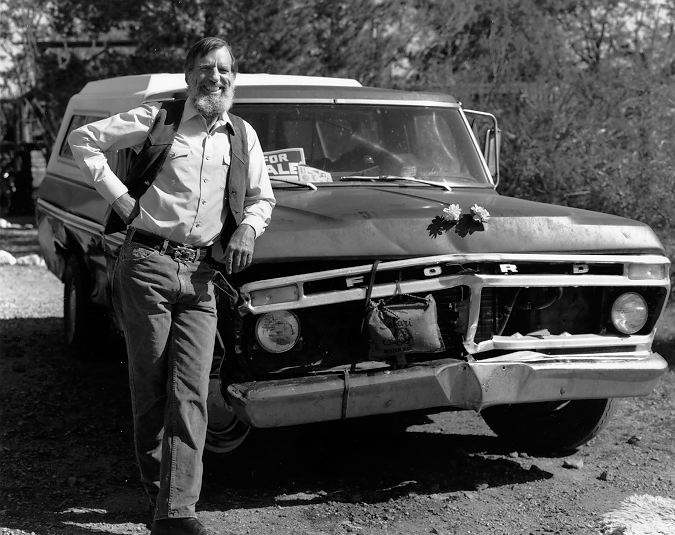It was not Abbey’s monkey-wrenching, high-speed chases, and pro-environment tirades that made him such an important voice but rather the fact that he loved the desert Southwest with all his heart, knew the landscape cold, and wrote about it with great skill and utter authenticity. He came from the Pennsylvania Appalachians to New Mexico in the 1940s and immersed himself in the Southwest, eventually writing books such as The Brave Cowboy, Fire on the Mountain, and, published in 1968, Desert Solitaire, one of the great works in conservation philosophy in which he warned of the “industrial tourism” that now plagues the Southwest.

Abbey’s writing is tactile and immediate, and often depicts the small and seemingly insignificant denizens of the desert. He had a favorite juniper—“ragged,” “with a sapless claw”—at Arches National Park where he served as a ranger. He gave his admiration to another juniper for simply making it in the harsh environment: It was “a degenerate juniper tree ... an underprivileged juniper tree, living not on water and soil but on memory and hope. And almost alone.”
Abbey challenged us physically: “You can't see anything from a car; you've got to get out of the goddamned contraption and walk, better yet crawl, on hands and knees, over the sandstone and through the cactus. When traces of blood begin to mark your trail you'll see something, maybe." He challenged us intellectually: “The desert… sharpens and heightens vision, touch, hearing, taste and smell. Each stone, each plant, each grain of sand exists in and for itself with a clarity that is undimmed by any suggestion of a different realm…. Only the sunlight holds things together. Noon is the crucial hour: the desert reveals itself nakedly and cruelly, with no meaning but its own existence.”
Edward Abbey gave us the desert. He implored us to understand it, love it, and protect it. Ever since, conservation has made great strides in the desert Southwest. Much more progress will come, for now we are clear on what we have to save and what we have to lose.
America’s Top 10 Conservation Heroes is a series honoring the individuals and organizations that have made the biggest mark on conservation, environmental protection, and awareness of the outdoors. The series is written by Charles Wilkinson, Distinguished Professor at the University of Colorado and author of fourteen books on law, history, and society in the American West.
Header Photo: Edward Abbey and Delicate Arch (Flickr Credit: ArchesNPS)
America’s Top 10 Conservation Heroes
1. Theodore Roosevelt
2. John Muir
3. Rachel Carson
4. Stewart Udall
5. Aldo Leopold
6. Ansel Adams
7. Earthjustice
8. Henry David Thoreau
9. Edward Abbey
10. Bruce Babbitt
